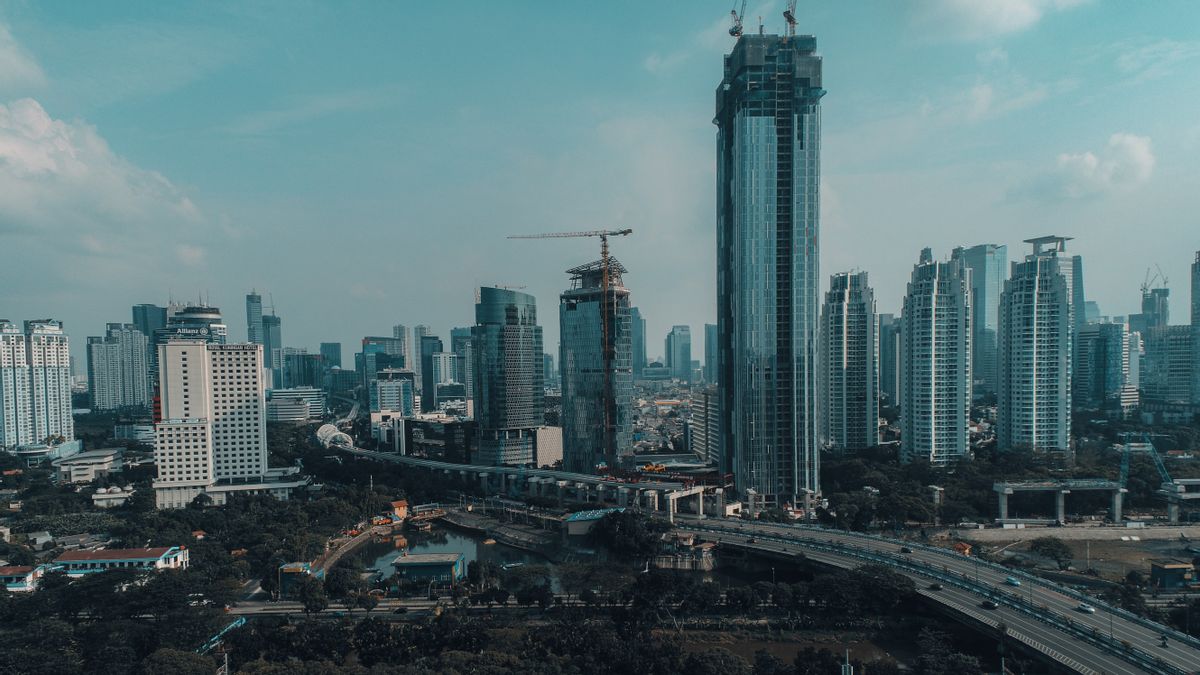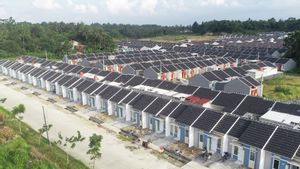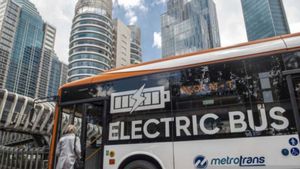JAKARTA - The easing of large-scale social restrictions (PSBB) is said to have made economic activities revive. In fact, the upper middle class has begun to dare to consume and travel during the COVID-19 pandemic.
Special Staff to the Minister of Finance Yustinus Prastowo hopes that the easing of the PSBB will have a multiplier effect. This condition is expected to leverage the domestic economy.
"The key is in the upper middle class when the economy has begun to be loosened, the PSBB is relaxed, there are activities, it is hoped that it will create a positive impact on efforts to create new jobs," he said, in a virtual discussion entitled 'The Effects of Recession in the Middle of a Pandemic', in Jakarta. , Saturday, November 7th.
Yustinus is optimistic that the more confident the upper middle class is consuming, it will make economic activity move again. The consumption of this group is considered very helpful for the government in accelerating economic growth.
"Because it is impossible to rely on government stimulus alone to support each sector," he said.
On the same occasion, PKS faction Commission XI member Anis Byarwati said the government should not only protect people's consumption, but also keep people from losing their purchasing power.
"It means that the people who are most severely affected by this pandemic must pay attention to this," he said.
In addition, said Anis, the business world also needs attention. Because, he continued, if the business world does not survive, the company will carry out efficiency and will even lay off its employees.
Anis said that the efficiency of the company had a direct impact on people's consumption. According to him, the most realistic thing is how the government can help people prepare for a recession during a pandemic, and help the affected communities so they don't lose their purchasing power.
"Commission XI has often conveyed directly to the Minister of Finance the importance of the government in maintaining purchasing power, because until now consumption is still the main factor supporting our economy," he said.
For that, said Anis, in order to help people's consumption which is currently falling, government consumption must be encouraged so that it has a maximum impact on economic growth.
Meanwhile, Executive Director of the Indonesia Political Opinion (IPO) Dedi Kurnia Syah explained that the results of the survey conducted in October 2020 stated that currently there is no optimism, especially in the lower class regarding consumption.
"They are of the opinion that buying and selling transactions and all kinds are still low," he said.
As is known, Indonesia was officially declared to have experienced a recession after the Central Statistics Agency (BPS) recorded two consecutive quarters of contraction in economic growth. Indonesia's economic growth contracted by minus 3.49 percent (yoy) in the third quarter of 2020 after previously contracting minus 5.32 percent (yoy) in the second quarter of 2020.
One of the causes of Indonesia's slumping economic growth is believed to be due to weak purchasing power. BPS data shows that household consumption still contracted by minus 4.04 percent (yoy) in the third quarter of 2020.
Meanwhile, household consumption in the second quarter of 2020 also touched the level of minus 5.52 percent (yoy). However, household consumption in the third quarter of 2020 was declared better than the previous quarter, which grew 4.70 percent (qtq).
The English, Chinese, Japanese, Arabic, and French versions are automatically generated by the AI. So there may still be inaccuracies in translating, please always see Indonesian as our main language. (system supported by DigitalSiber.id)













